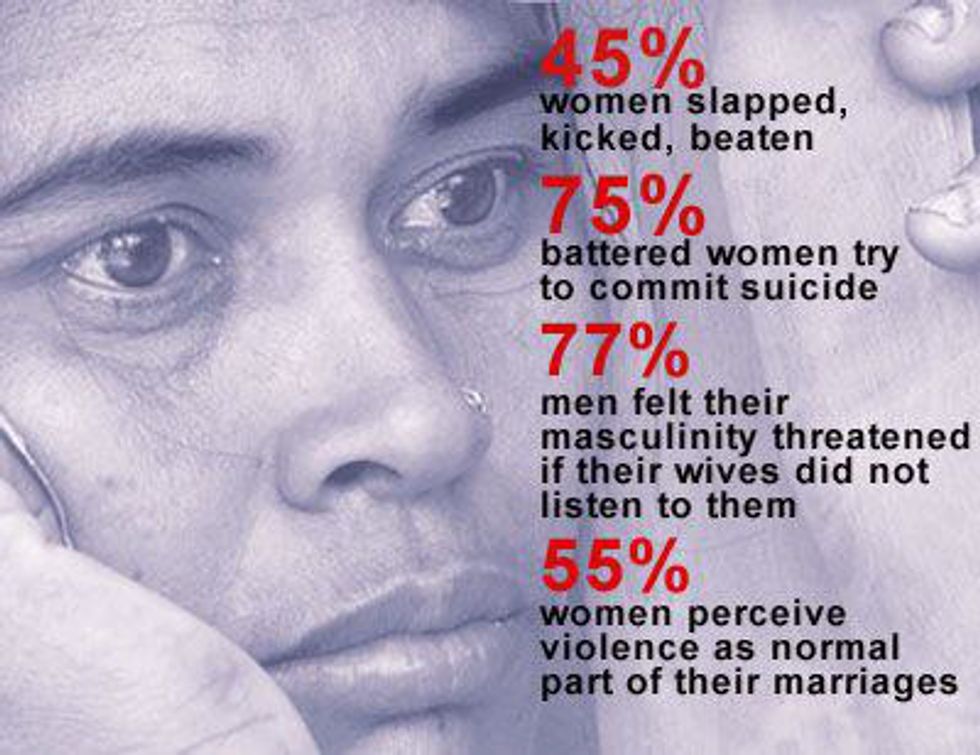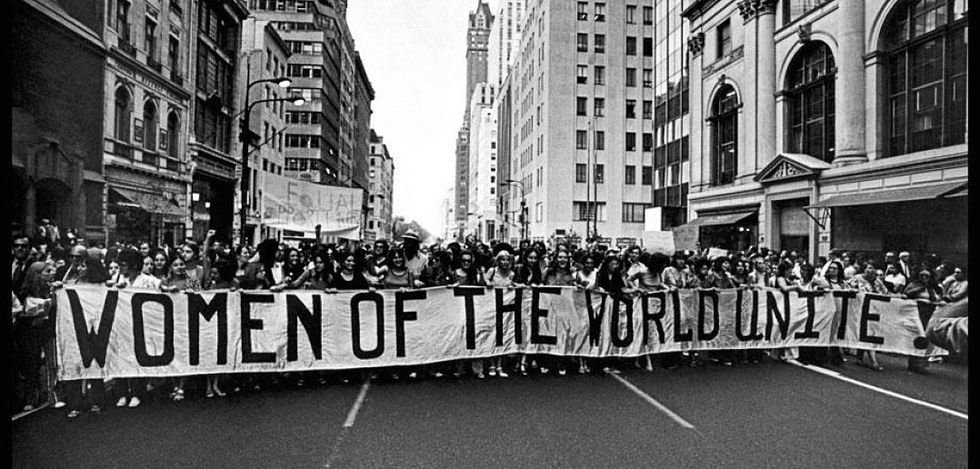Feminism is too often swept under the rug and considered another useless movement. While doing so, women across the globe are continuously being deprived of basic human rights. Rights men are handed while women had to earn over time.
What makes a man more valuable than a woman? Nothing, nor does anything make a woman better than a man.
In this time and age, women are gaining these rights but yet are constantly undergoing hate and criticism for wanting to obtain this equal status. Women are seen as man-haters and perceived as if they feel that they are superior to men. This is simply not the case.
Used to, women were expected to run a household while the man goes out and works for the family to live comfortably. If that were still the case today, there would be a lot of families going without. Today it takes more than one person’s income to be able to even get by with the bare minimums.
With the luck of the draw, of course, women have stepped out of the kitchen and put their aprons down. They have picked up the courage and ability to go out and contribute to their families themselves. Today we need to let these women embrace their calling and encourage their contributions to society.
Feminism in a Nutshell
According to the Merriam-Webster, feminism is “the belief that men and women should have equal rights and opportunities; organized activity in support of women's rights and interests.”
It is too frequent that feminists are given the wrong representation. There’s a saying that goes, ‘one bad apple will make the whole tree look bad,’ and this is a common misconception of feminists today. People don’t even know what feminism really is because their idea of it has been clouded.
“I wouldn’t use that word because it’s so strong but I do believe in equal rights among everyone,” said sophomore at Eastern Kentucky University Molly Tyson.
Feminists are people who want women to be treated equally with men and vice versa. It is the activism of women's human rights on the grounds of political, social, and economic equality to men to be exact.
What that means is women should be lawfully allowed to do anything a man can do and be treated as equal for doing so. For example, although women have left the kitchen at home, they are still paid less than men in some cases. That is a wrongfully instated idea that makes no sense as to why a man should be paid more for the same job a woman completes just as successfully.
Men are even criticized and have certain expectations to just be a ‘man.’ They are often criticized for being too emotional and for being too sissy-like. This has got to stop as well.
Men are also victims of this. They are not given the right to be sensitive, they are told to ‘toughen up,’ or to ‘be a man.’ They don’t get the benefit of equality either. Men deserve the right just as women do to be as sensitive as they want to be.
Men and women should be able to equally feel and act as they want to. One shouldn’t be considered manlier or more sensitive than the other. Both males and females should be able to act as they please. These prejudices need to be put to a stop. Gender equality is an essential basic right that everyone deserves.
The Waves Of Feminism
There are three waves of feminism throughout history. The first wave of feminism took place in the late nineteenth and early twentieth centuries, evolving out of an environment of urban industrialism and liberal, socialist politics. The idea of this wave was to start up opportunities for women, with an emphasis on suffrage. They wanted to have a say, they wanted to vote. This wave unfolded in the context of the anti-war and civil rights movements and the growing self-consciousness of a variety of minority groups around the world.
The New Left was on the rise, and the voice of the second wave was increasingly radical. In this stage, sexuality and reproductive rights were main issues, and much of the movement's energy was fixated on passing the Equal Rights Amendment to the Constitution promising social equality despite your sex.
Third-wave feminists often don’t even use the term ‘feminist’ because of the negative connotation it has taken on over the years. The third wave of feminism began in the mid-90s and was informed by post-colonial and post-modern thinking. In this stage many concepts were weakened, including the notions of "universal womanhood," body, gender, sexuality and heteronormativity.
There’s been talk of a fourth wave that’s been building up for a while and is bound to combine all the good things from the previous waves and continue to help women gain full equality.
According to Rachel Biron, Feminism “has progressed over the years and has done so much good for women and for the rights of equality. I hope there comes a day when there will be no difference between genders; there will be equality for all.”
These waves have progressed over time, reaching out to all the endless rights they have yet to receive. Year after year women have put down their differences with men, only to want to be their equal. Women want to be by their side, not stepping in alignment behind men.
The waves of feminism are sure to continue growing and reach the goals of complete equality; a day where a man can stand next to a woman and vice versa and call them their complete equal.
Stereotypes
The sad part about such a movement like feminism is the fact that people don’t really see it for what it really is. Their judgment has been clouded by the wrong representation of feminism.
High school student Haley Smith said, “I don’t need feminism because real feminism is about equal opportunities, not walking around like I’m better than a man and degrading him.”
Another huge misconception. Too often people are not seeing feminism for what it really is. They bend to the will of the negativity it gets from people.
There are so many stereotypes of feminists that are not true at all, or at least misunderstood. There are about a handful of basic ones that include; their hatred towards men, they’re whining liberalists, they’re unshaved savages, and also that only women are feminists. These are serious stereotypes that need to be put aside.
Women do not hate men; they only strive to be their equals. They aren’t hairy, gross representation either. There are women, however, who do not shave to address the double standard that men don’t have to shave and women shouldn’t.
Another thing, women don’t just constantly complain and whine about things, they only speak up really when they see something isn’t fair or against their beliefs.
Lastly, to address that men aren’t usually feminists is wrong because a gender shouldn’t define who you are.
Russell Weedman is a University of the Cumberlands professor and will proudly tell you he is a feminist, saying this, “I think it is important to have a level playing field for men and women in places like work, politics and just living and biologically. That’s the primary reason. Everybody has a mom, you dig that? If you don’t want your mother to be treated like every man and have the same sense of equality, then there is something wrong with you as far as I’m concerned, and that should be the start of it for every man. I don’t understand how men in all those arenas, politics and workplaces, etc., Why would some men want to demean women and treat them as second class citizen, would they do that to their mom?”
Violence Against Women
Another big issue women face is the fact that they are seen as sex slaves to men more times than they are not.
Recent global figures indicate that about 35 percent (one in every three) of women worldwide have been a victim of either physical and/or sexual intimate partner violence or non-partner sexual violence in their lifetime.
Most of this violence is intimate partner violence. Worldwide, almost one third 30 percent of women who have been in a relationship report that they have experienced some form of physical and/or sexual violence by their intimate partner.
Globally, 38 percent of murders on women are committed by an intimate partner. This is just in relationships. Odds are women are being seduced and taken advantage of just by going to the club.
A huge issue facing women and men apart is the fact that men tend to believe women wear what they do in the hopes of coming onto a man. This is not accurate.
Women do and wear what they want to feel good, and men who can’t seem to control themselves need to be the ones being criticized. Not women just going out to have a good time just like any man would want to do.
There’s an event called the Slut Walk where groups of women who have been sexually assaulted band together in unity for a great cause; a woman’s body is her own to give and not to be taken.
Women and girls are also, believe it or not, still being forced into marriages against their will, particularly in places like Asia, the Middle East, and sub-Saharan Africa. Over 60 million girls worldwide were married before they reached the age of 18 primarily in South Asia (31.3 million) and sub-Saharan Africa (14.1 million).
Also, 2.5 million people have trafficked annually into situations including prostitution, forced labor, slavery or servitude. Women and girls account for about 80% of the detected victims. That’s unbelievable, to say the least. These are just a few examples of violence against women and aren’t even the worst cases scenarios.
“Violence against any gender or person or thin at all alone is a huge reason why I am a feminist,” said Alex Withers, a University of the Cumberlands Junior.
Moments In History
Throughout history, there has been movement after movement in hopes of gaining the equality amongst genders that all people deserve.
In 1848, the first women's rights convention is held in Seneca Falls, New York. After 2 days of discussion and debate, 68 women and 32 men sign a Declaration of Sentiments, which outlines grievances and sets the agenda for the women's rights movement. A set of 12 resolutions is adopted calling for equal treatment of women and men under the law and voting rights for women.
In 1850, the first National Women's Rights Convention took place in Worcester, Massachusetts, drawing more than a thousand participants.
In 1890, the National Women Suffrage Association and the American Women Suffrage Association combine to form the National American Woman Suffrage Association (NAWSA). As the movement's conventional organization, NAWSA wages state-by-state campaigns to attain voting rights for women.
In 1903, the National Women's Trade Union League (WTUL) was established to sponsor improved wages and working conditions for women.
In 1916, Margaret Sanger opens the first U.S. birth-control clinic in Brooklyn, N.Y. Although the clinic is shut down 10 days later and Sanger is arrested, she eventually wins support through the courts and opens another clinic in New York City in 1923.
In 1920, the 19th Amendment to the Constitution, permitting women the right to vote, is signed into law by Secretary of State Bainbridge Colby.
It wasn’t until 1960 that the Food and Drug Administration approved birth control pills.
In 1964, title VII of the Civil Rights Act bars discernment in employment on the basis of race and sex. It also establishes the Equal Employment Opportunity Commission (EEOC) to investigate complaints and impose penalties.
In 1966, the National Organization for Women (NOW) was founded by a group of feminists with Betty Friedan as a part of the team. It is the largest women's rights group in the U.S. NOW, and their goal was to end sexual discrimination, especially in the workplace, with the help of legislative petitioning, litigation, and public demonstrations.
In March of 1972, the Equal Rights Amendment (ERA) is passed by Congress and sent to the states for ratification. Originally drafted by Alice Paul in 1923, the amendment reads: "Equality of rights under the law shall not be denied or abridged by the United States or by any State on account of sex." The amendment died in 1982 when it failed to achieve ratification by a minimum of 38 states.
In June of 1972 title IX of the Education Amendments bans sex discrimination in schools. It states: "No person in the United States shall, on the basis of sex, be excluded from participation in, be denied the benefits of, or be subjected to discrimination under any educational program or activity receiving federal financial assistance." As a result of Title IX, the enrollment of women in athletics programs and professional schools increases intensely.
There are endless moments in history where equality is being gained by the hour, in hopes of a day where there will be no more inequality amongst people.
Austin Nantz, a student at University of the Cumberlands says this, “Feminism over time has gained good and bad reputations, nonetheless, they have been very successful and I hope they can earn the rights men receive and I hope men can be seen as equals to women and nothing less or more.”


























